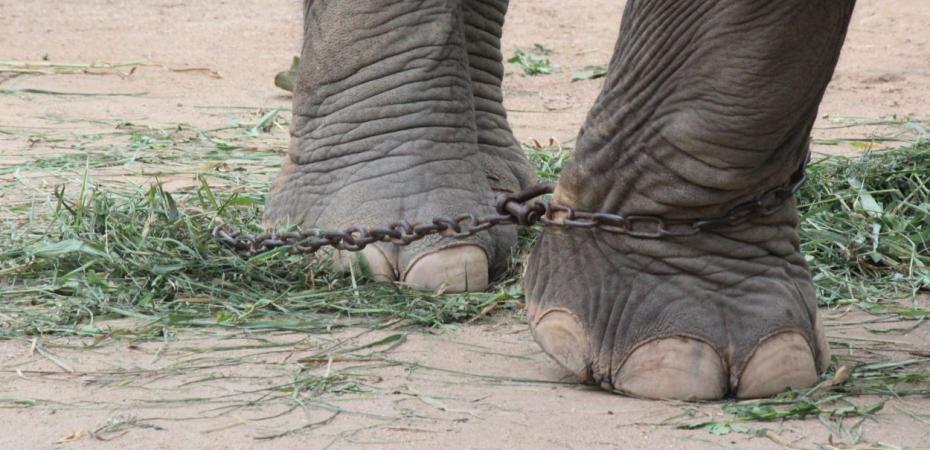Elephant riding and elephant camps
Many elephants in Southeast Asia live in poorly managed tourism camps and are deprived of any happiness and freedom. They are used for close contact interactions including riding, bathing, and hands-on feeding for photo opportunities. While these activities may appear to be fun, and elephant handlers may suggest their elephants participate voluntarily, nothing is amusing for these elephants.
We believe the direct contact activities subject some individuals to unnecessary suffering and deprive many individuals of socialising and foraging opportunities essential for their welfare.

Mistreatment of elephants used for riding and performances
Elephants used in entertainment are either born into a life of captivity or in some cases ripped from their families in the wild, many are beaten into submission and forced into a life of abject misery in a circus or tourist camp, subjected to ‘abusive games’ from an early age.
At some tourism camps, elephants may endure the indignity and physical pain of performing circus tricks, such as standing on their heads, spinning in circles on one leg, and walking on rolling barrels. Many spend long periods chained to the spot, with limited access to food and water during the day, and are forced to give rides or pose for photos in intense heat. Handlers armed with sharp sticks or bullhooks are nearby to enforce compliance, reminding the elephants of the physical punishment they risk if they misbehave. No matter how gently these tools may be used in your presence, at some point it would have been established as a negative reinforcer in order to be effective.

Elephants in such poorly managed facilities may be suffering physically and mentally as they are deprived of the ability to perform their wide repertoire of natural behaviours. Joint and foot problems with nail splitting, arthritis and hernias are common issues resulting from repeatedly performing unnatural positions, standing on a hard surface for long periods, poor diet and carrying excess weight.

Studies show that elephants previously used for riding, logging, and circus shows exhibited at least some symptoms of complex post-traumatic stress disorder, including stereotypic repetitive movement activities, cognitive symptoms, mood disturbances, and overdeveloped avoidance responses.
Most importantly, they are deprived of making choices about how they would spend their day for themselves and forced into participating in human-mandated activities.


